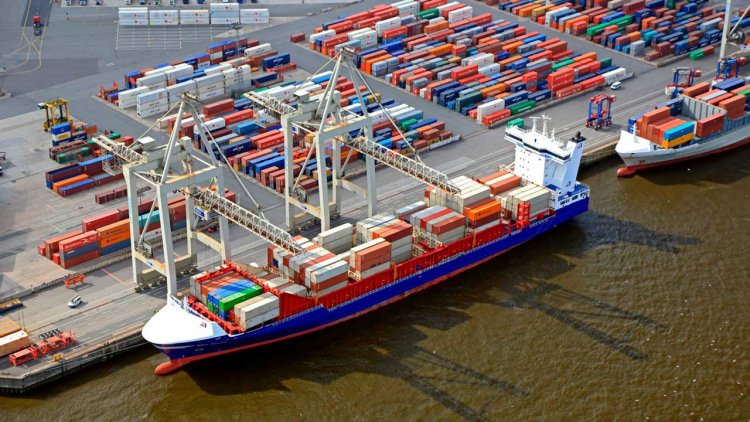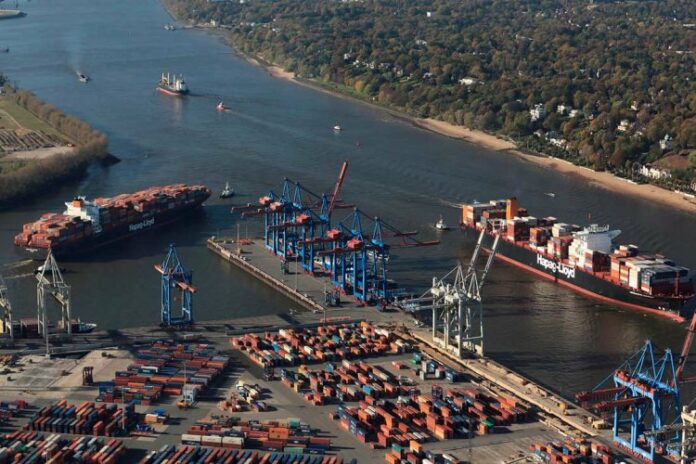Senate presents Port Development Plan: Innovation plus quality to create sustainable added value
This lays down strategic guidelines for the port policy of the coming years, defines the availability of land for port development, and outlines strategic orientation for their future utilization.
Dr. Melanie Leonhard, Senator of Economics and Innovation:
“Hamburg is and will remain Germany’s largest seaport. This is of fundamental importance for the economic strength of Germany as an exporting economy and for supply chain security at national and European level. Going forward, we shall continue to operate a large, efficient universal seaport that serves these aims. Cargo handling is not an end in itself and container numbers may be an indicator, but are not the only relevant factor. Unlike other ports, Hamburg is itself a significant market and industrial base. Goods on arrival are not only transhipped, but also consumed or further processed.”
The Port Development Plan cites global trends, local operating conditions, and both social and economic developments. To remain competitive, the port needs to adapt continuously to these. The Port Development Plan accordingly defines guidelines for the required transformation processes and cites concrete areas for action, goals and measures. Along with many individuals, such stakeholders in the port as companies, trade associations and chambers have been comprehensively integrated several times in the drafting process.
The port will harness such global mega-trends as digitalization, climate protection, the circular economy, the transformation of work, and e-commerce, to extend its position. Customer orientation, quality and climate protection are crucial leitmotivs for the development of the port. Hamburg will rely on its existing strengths, yet primarily on its great diversity. This not only opens up numerous development prospects for the port, at the same time making it adaptable and resilient in face of economic fluctuations. The Port of Hamburg should continue in future to be notable for a variegated range of services, from cargo handling, via its broad industrial base and efficient logistics, to cruise shipping. Going forward, the port development plan presents a strategic land utilization regime providing the basis for facilitating a mix of functions in future.

The project covers the following opportunities for action in the city and the port: Digitalization, climate protection, a circular economy and ecology, maintenance and expansion of infrastructure, settlement and land strategy, transformation of work, e-commerce. These cover measures for the further development of infrastructure and the use of digital aids. Special attention is given to the powerful Port Railway network and the superb rail infrastructure with the hinterland that makes the Port of Hamburg a pioneer of the climate-considerate transformation of freight traffic. From 2040, the Port should be climate-neutral in its operations. In addition, the determined expansion of shore power-supply for vessels will reduce emissions of harmful pollutants, contributing directly towards keeping the atmosphere clean.
Dr. Melanie Leonhard, Senator of Economics:
“We will continue strengthening our port’s function as a value added centre and maritime logistics hub. The global environment makes major advances on digitalization, efficiency and climate neutrality necessary. We will forge ahead with start-ups and further development in parallel with these different requirements. Our port is already now more essential than ever. In the next few decades we will require large quantities of renewable, rather than fossil, sources of energy. These will reach Hamburg via the port that we are now remodelling to be the driving force for the energy transition. Maritime logistics can therefore play an essential part in climate-friendly transport and decarbonization of society as a whole. In Hamburg, our port is the key player for this.”



